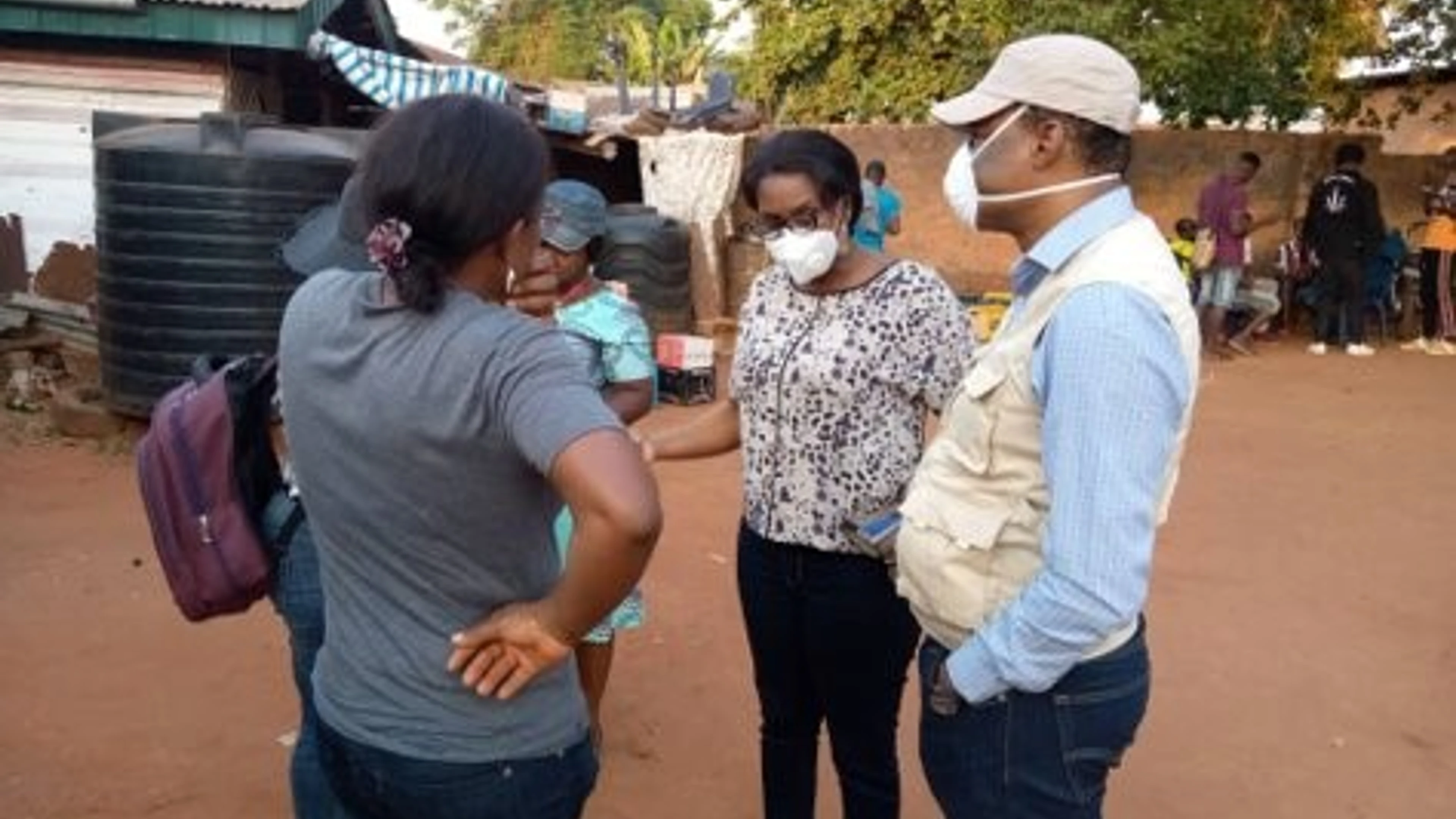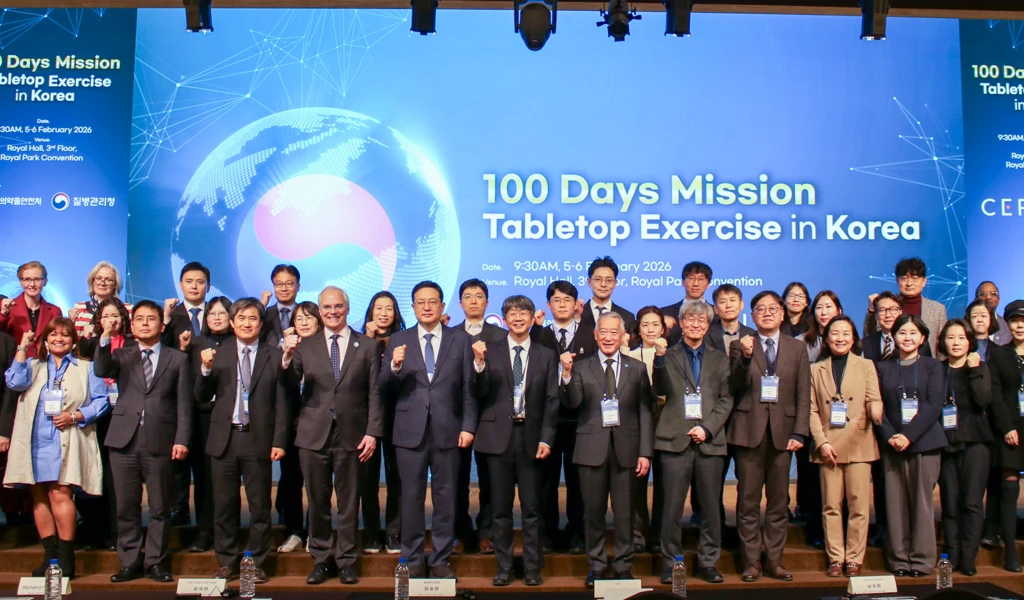New CEPI-funded and facilitated research programme, ‘Enable', aims to increase knowledge of the disease and assess true case count of those infected across the region.
Lassa fever is a deadly haemorrhagic illness with epidemic potential, for which CEPI is seeking to develop a vaccine. Findings from Enable will help inform the design of future late-stage Lassa vaccine trials.
Up to 23,000 participants will be enrolled into studies in outbreak-prone areas—Benin, Guinea, Liberia, Nigeria and Sierra Leone—with the first participants enrolled in Nigeria over the first week of December.
December 18, 2020, Oslo, Norway and Abuja, Nigeria — The largest-ever Lassa fever research programme in West Africa has been launched in Nigeria by the Coalition for Epidemic Preparedness Innovations (CEPI), the Nigeria Lassa Fever Research consortium consisting of the Nigeria Centre for Disease Control (NCDC), and supporting partners, to provide a more accurate estimate of the incidence of the deadly haemorrhagic disease across the region. Supported through US $26 million in funding from CEPI, up to 23,000 participants across Nigeria and, in later weeks, four other outbreak-prone countries—Benin, Guinea, Liberia, and Sierra Leone—will take part in the programme, named ‘Enable', over the next 24 months.
Due to significant variability and severity in symptoms, and lack of formal and standardised diagnoses, the true case count of those who have or have previously suffered from Lassa fever infection in West Africa is likely much higher than current estimates of 100,000 to 300,000 cases per year. The aim of this multi-country research effort is to therefore build on existing local Lassa fever research and surveillance and provide an update to existing research on the number of people infected with the disease. Findings should also highlight any differences in the age and gender of people getting infected and provide a more accurate overview on the proportion of asymptomatic and symptomatic cases.
Such data will be critical in guiding decisions on the design of future late-stage efficacy trials to evaluate potential Lassa vaccine candidates. As a leading funder of Lassa vaccine development, CEPI has supported the development of six Lassa vaccine candidates to date- with two vaccines, developed by CEPI partners Inovio and Themis Bioscience, entering clinical trials last year. Without these findings on Lassa virus circulation, planning the locations for where clinical trials can take place would be challenging. Through improving understanding of the burden of the disease, data could also help in defining an appropriate vaccination strategy for when a Lassa vaccine is approved for use (eg through identifying priority populations at risk).
Funding will be used to train staff to carry out the studies and provide equipment to support the programme's operation. As such, Enable is likely to not just benefit Lassa fever research, but also build laboratory capacity to complement the work on other emerging infectious diseases which may impact the region, including COVID-19.
Lassa fever is a serious public health threat across West Africa; however, we do not currently have an accurate picture of the number of those who are suffering with or have recovered from viral infection.
Enable is a landmark collaboration and the largest study ever to be undertaken on Lassa fever. In addition to providing crucial data on the prevalence and spread of the disease the work will also help inform CEPI-supported Lassa vaccine efficacy studies, which we hope can be launched in the next few years.
Over 4800 participants have so far already enrolled to take part in the Nigeria component of the Enable programme, named the Nigeria Lassa Epidemiology, or NiLE study. Rates of potential infection will be measured in participants through standardised observational measures - ‘active surveillance' with repeat health status assessments by a field worker through home visits or phone meetings to assess the health status of participants, and ‘passive surveillance' where participants will be encouraged to report potential illness or to self-present at a health facility and the suspected or confirmed case is then recorded. The study design was devised by all study site partners who will be running the programme across West Africa. All will follow the same core protocol and methodologies to allow for standardised recording and comparability of Lassa fever incidence data.
A subset of those enrolled in Nigeria and the other Enable programme study sites will take part in an additional assessment to look at the prevalence of Lassa fever antibodies — biomarkers of the immune response. This will act as an indicator to better guide estimates on how many individuals in the general population are likely to have previously been infected with the virus and are, at present, protected against (immune from) the disease, since it is generally assumed that a single infection with Lassa fever virus will produce life-long protective immunity.
In 2019, when NCDC hosted the first-ever Lassa fever International Conference in Abuja, Nigeria, we identified the limited research activities in this area as a challenge and an opportunity. We are very proud of the rapid investment and collaboration to begin this epidemiological study. This will provide a better understanding of Lassa fever burden in Nigeria and other West African countries and contribute to the critical goal of developing a Lassa fever vaccine.
This is the beginning of the end of yearly Lassa fever epidemics. It is awesome to be a part of this and we are excited by the enthusiasm of our project staff. We thank CEPI for the initiative and the funding.
The journey from Call for Proposals, protocol development and now at the implementation of the Study has been both a learning and capacity building experience for all partners of the Enable programme. This collaborative innovative approach with ownership by the participating countries provides a new and better pathway for how research should be done in the region.
Enable study partners were first selected following Calls for Proposals, published by CEPI in 2018 and 2019, which sought groups with extensive Lassa research and field research experience across West Africa.
The programme is governed by a committee of key representatives from each of the five partner countries, and is collaboratively managed by four organisations commissioned by CEPI to support the implementation of the programme: the Bernard Nocht Institute for Tropical Medicine (BNITM), Epicentre, the Margan Clinical Research Organization (MMARCRO), and P95.
Additional Partner Quotes
We are very proud to serve as coordinator of this tremendous initiative, spearheaded by CEPI. To be able to collaborate with public health and research institutes from Western Africa, as well as other partners from Europe, fits perfectly in our mission to apply the best epidemiology to the improvement of public health worldwide.
It is therefore a great achievement that we have started participant recruitment for the Enable Lassa programme after everyone's hard preparation over the last months and despite the challenges of the ongoing COVID-19 pandemic. The pandemic challenges have spurred us all to adapt and improve our communication and working strategies. These improvements will continue to be of value as the programme progresses, and for any future Lassa vaccine trials.
Every new laboratory or extension of capacity is critical to cope with COVID-19, Lassa fever and other viral pathogens. The extension of laboratory capacity by the Enable programme will greatly enhance the ability to diagnose and eventually treat Lassa fever, Yellow Fever and COVID-19 patients. In addition, the diagnostic facility [at Irrua Specialist Teaching Hospital in Nigeria] will facilitate clinical research on these diseases.
-ENDS-
Notes to Editors
About Lassa fever and Lassa vaccine development
Lassa haemorrhagic fever is spread through coming into contact with the infected rodent host Mastomys natalensis, or from person-to-person contact via bodily fluids. It is a zoonotic viral infection found predominantly in West Africa. The majority of patients who become infected with Lassa virus infection are asymptomatic; however, in some cases, disease may progress to more serious symptoms including fever, vomiting, body pains, and haemorrhaging. Death may also occur within two weeks after symptom onset due to multi-organ failure.
An estimated 100,000 to 300,000 Lassa fever cases are thought to occur in West Africa annually, resulting in approximately 5,000 deaths. However, due to significant variability and severity in symptoms, clinical diagnosis is often difficult. The annual case reporting rate is also impacted by the remoteness of some regions where Lassa fever outbreaks may occur, resulting in difficulties in accessing health care services for a formal diagnosis. This therefore means that the true case count of those who have or have previously suffered from infection is likely much higher than current estimates. In addition, because there is no standardised assessment across the region, researchers are unable to compare data where cases have been recorded.
There are no licensed vaccines or treatments specifically for Lassa. In recognition of its epidemic potential, for which no countermeasures currently exist, Lassa fever is currently listed on the World Health Organization's Research and Development (R&D) Blueprint list of priority diseases and is one of CEPI's priority diseases to expedite the development of vaccine candidates. CEPI currently has 6 Lassa vaccine candidates in its portfolio — with Emergent Biosolutions & PATH, Inovio Pharmaceuticals, International AIDS Vaccine Initiative (IAVI), Themis Bioscience, Janssen Vaccines & University of Oxford, and CureVac. Inovio's Lassa fever candidate entered Phase I clinical trials in May 2019. Themis Bioscience's initiated Phase I clinical trials with its Lassa fever vaccine candidate in October 2019.
The first-ever international Lassa fever conference was held by Nigeria Centre for Disease Control (NCDC) in January 2019 to mark fifty years since the virus was first discovered in a town in Nigeria. The conference was used to bring researchers and practitioners from across the world together, to share and appraise global efforts towards the control of Lassa fever.
About the Enable Lassa research programme
Enable Lassa research programme study site partners include:
NIGERIA Nigeria Centre for Disease Control (NCDC), Irrua Specialist Teaching Hospital (ISTH), Federal Medical Centre (FMC) Owo, Alex Ekwueme Federal University Teaching Hospital Abakaliki (AEFUTHA), Redeemer's University Nigeria (RUN) and the African Field Epidemiology Network (AFENET). Together, the Nigerian partners make up the NiLE project of the Enable
BENIN Fondation pour la Recherche Scientifique (FORS)
LIBERIA Co-led by University of North Carolina at Chapel Hill (UNC) and Phebe Hospital in partnership with the National Public Health Institute of Liberia (NPHIL)
SIERRA LEONE Co-led by Kenema Government Hospital (KGH) and Tulane University
GUINEA Université Gamal Nasser de Conakry (UGANC) in partnership with Robert Koch Institute (RKI)
CEPI will work as a funder and facilitator, supporting the financing of the programme as well as supporting a country-led governance framework and forging key links to the global scientific and vaccine development communities.
Enable partners were selected following an Expression of Interest and Call for costed project plans, published by CEPI in 2018 and 2019, which sought partners with extensive Lassa research and field research experience across West Africa. A workshop was first held in January 2019 in Abuja, Nigeria, to engage study sites in the creation of the shared protocol for the studies and to inform and obtain feedback from partners on the next steps in the development of the programme.
In addition to the country partners, CEPI has selected four implementing partners to support the execution and oversight of the Enable programme. P95 will act as programme coordinator, providing scientific and operational oversight to all coordinating partners and country study implementation teams as well as programme-level project management. The Margan Clinical Research Organization (MMARCRO), based in Accra, Ghana, supports P95 through in-country field implementation and study monitoring support. Epicentre, a Paris-based organization conducting field epidemiology activities, research projects and training sessions in support of Médecins Sans Frontières (MSF); leads development of the programme data management system; is providing training and support to staff operating at Enable study sites; and supervising the data collection, management, and analysis processes. The Bernard Nocht Institute for Tropical Medicine, based in Hamburg, Germany, will support the Enable programme through laboratory expertise and support to country implementing partners, including staff training, laboratory process development, and quality assurance.
About CEPI
CEPI is an innovative partnership between public, private, philanthropic, and civil organisations, launched at Davos in 2017, to develop vaccines to stop future epidemics. CEPI's priority diseases include Ebola virus, Lassa virus, Middle East Respiratory Syndrome coronavirus, Nipah virus, Rift Valley Fever virus and Chikungunya virus. CEPI also invested in platform technologies that can be used for rapid vaccine and immunoprophylactic development against unknown pathogens (Disease X).
CEPI has moved with great urgency and in coordination with WHO in response to the emergence of COVID-19. CEPI has initiated 10 partnerships to develop vaccines against COVID-19. The programmes will leverage rapid response platforms already supported by CEPI as well as new partnerships. The aim is to advance COVID-19 vaccine candidates into clinical testing as quickly as possible.
Follow our news page for the latest updates. Keep up to date on Twitter and LinkedIn.
About Nigeria Centre for Disease Control (NCDC)
The Nigeria Centre for Disease Control is the country's national public health institute, with the mandate to lead the preparedness, detection and response to infectious disease outbreaks and public health emergencies. The mission for the NCDC is ‘To protect the health of Nigerians through evidence-based prevention, integrated disease surveillance and response activities, using a one health approach, guided by research and led by a skilled workforce'. The NCDC conducts, collates, synthesizes and disseminates public health research among other functions to inform policy. And also leads Nigeria's engagement with the international community on diseases of public health relevance.
Media Contacts
CEPI
Email: [email protected]
Phone: +44 7387 055214
Nigeria Centre for Disease Control (NCDC)
Email: [email protected]
NCDC Toll-free Number: 0800-9700 0010 | SMS: 08099555577 | WhatsApp: 07087110839 |
Twitter: @NCDCGov | Facebook: @NCDCgov | Instagram: @NCDCgov | NCDC Media Releases



.webp)